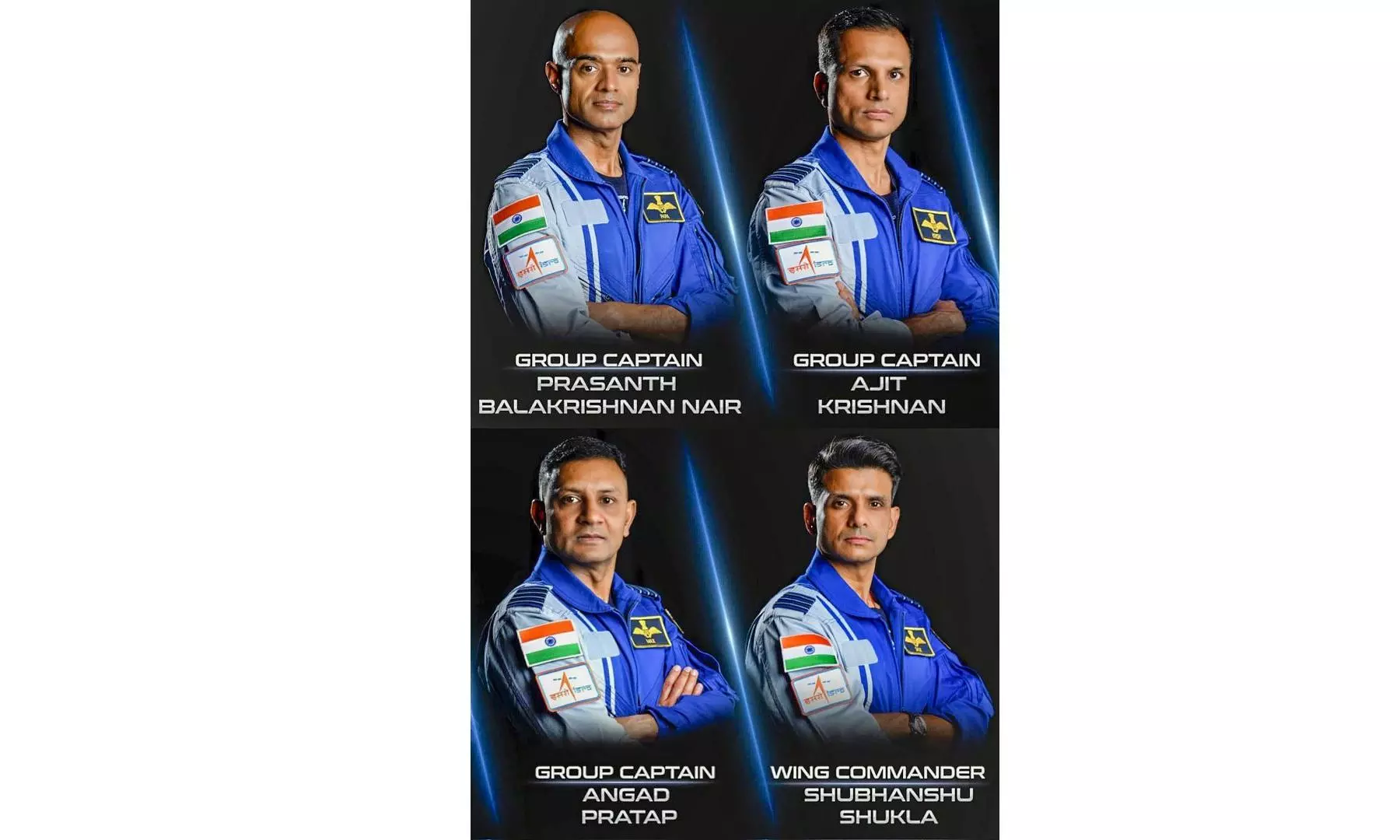DC Edit | Indian astronauts set for space adventure
Four Air Force test pilots shortlisted to embark on a historic journey in India's indigenous spacecraft, marking a significant milestone in the nation's space ambitions

Astronauts-designate Prashanth Balakrishnan Nair, Ajit Krishnan, Angad Prathap and Shubanshu Shukla for the 'Gaganyaan Mission', India’s first crewed mission to the space. (PTI Photo)
As India aims to expand space exploration, four well-trained Air Force test pilots are on a shortlist to become astronauts, ready to embark on a wondrous journey to the stars and stardom. In an earlier era of the space race, India had an astronaut in space, Rakesh Sharma, but this time there is a different feel to it as the country has become a major player in space and has plans for its own space station, besides successful unmanned missions to faraway places, including Aditya-L1 to study the Sun.
While Rakesh took a ride on a Soviet spacecraft four decades ago, astronauts from among Prasanth Balakrishnan Nair, Ajit Krishnan. Angad Pratap and Shubanshu Shukla will be on a low-earth orbit flight in a homegrown spacecraft launched on a desi rocket in an indigenous mission. The first test flight to take place as early as this year and a manned flight in 2025 of a habitable space capsule that will be in orbit for three days at an altitude of 400 km and should splash down with three astronauts on board in a controlled descent into the Indian Ocean on its return.
India’s first crewed mission will be a significant milestone in the history of rocketry that may have begun with an early rocket heading to a launch in Thumba on the rear carrier of a bicycle in the 1960s. Considering India’s capacity to explore space with an astonishing degree of economy — the crewed Gaganyaan mission project may cost under $1.5 billion — there should be no financial constraints to the dream of elite scientists of the country to contribute to learning to expand the knowledge of all humanity.
India’s recent success with the Moon mission landing in the polar region upright and operating for a lunar day as opposed to Japan and a private US firm both facing trouble in achieving 100 per cent landing success should give Isro scientists great confidence in their own ability. Regardless of how far advanced technologically other space faring nations may be currently, India will be into space exploration on its own as well as on collaborative projects like Artemis.
While Rakesh took a ride on a Soviet spacecraft four decades ago, astronauts from among Prasanth Balakrishnan Nair, Ajit Krishnan. Angad Pratap and Shubanshu Shukla will be on a low-earth orbit flight in a homegrown spacecraft launched on a desi rocket in an indigenous mission. The first test flight to take place as early as this year and a manned flight in 2025 of a habitable space capsule that will be in orbit for three days at an altitude of 400 km and should splash down with three astronauts on board in a controlled descent into the Indian Ocean on its return.
India’s first crewed mission will be a significant milestone in the history of rocketry that may have begun with an early rocket heading to a launch in Thumba on the rear carrier of a bicycle in the 1960s. Considering India’s capacity to explore space with an astonishing degree of economy — the crewed Gaganyaan mission project may cost under $1.5 billion — there should be no financial constraints to the dream of elite scientists of the country to contribute to learning to expand the knowledge of all humanity.
India’s recent success with the Moon mission landing in the polar region upright and operating for a lunar day as opposed to Japan and a private US firm both facing trouble in achieving 100 per cent landing success should give Isro scientists great confidence in their own ability. Regardless of how far advanced technologically other space faring nations may be currently, India will be into space exploration on its own as well as on collaborative projects like Artemis.
( Source : Deccan Chronicle )
Next Story

